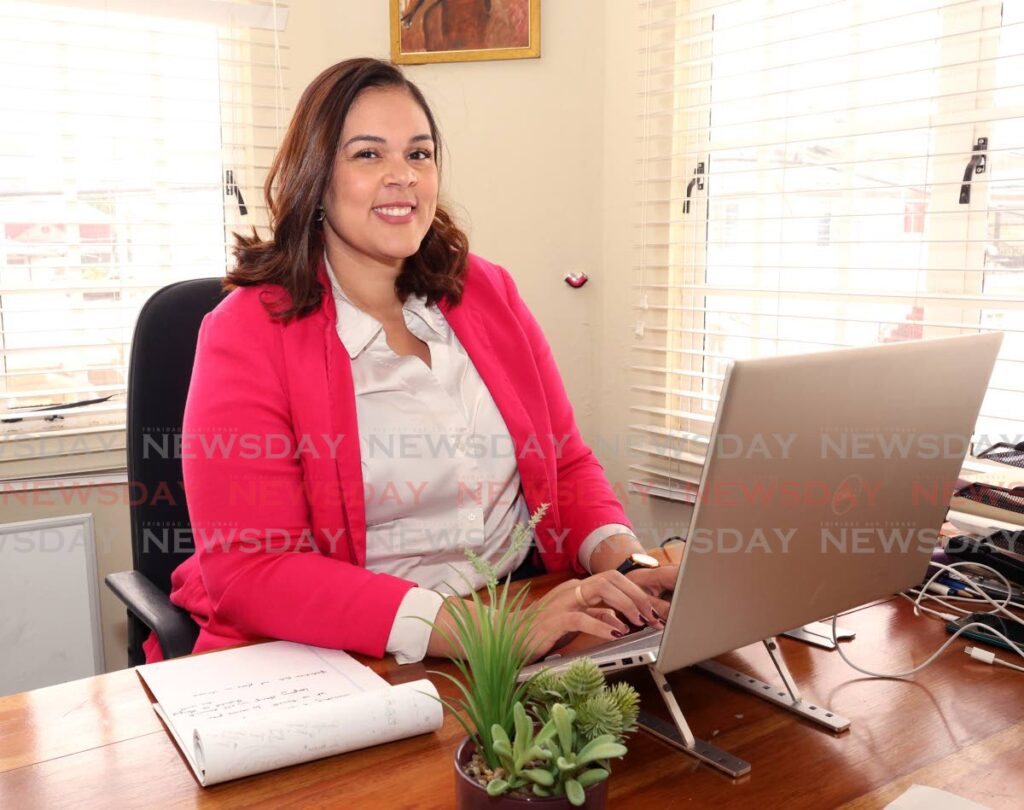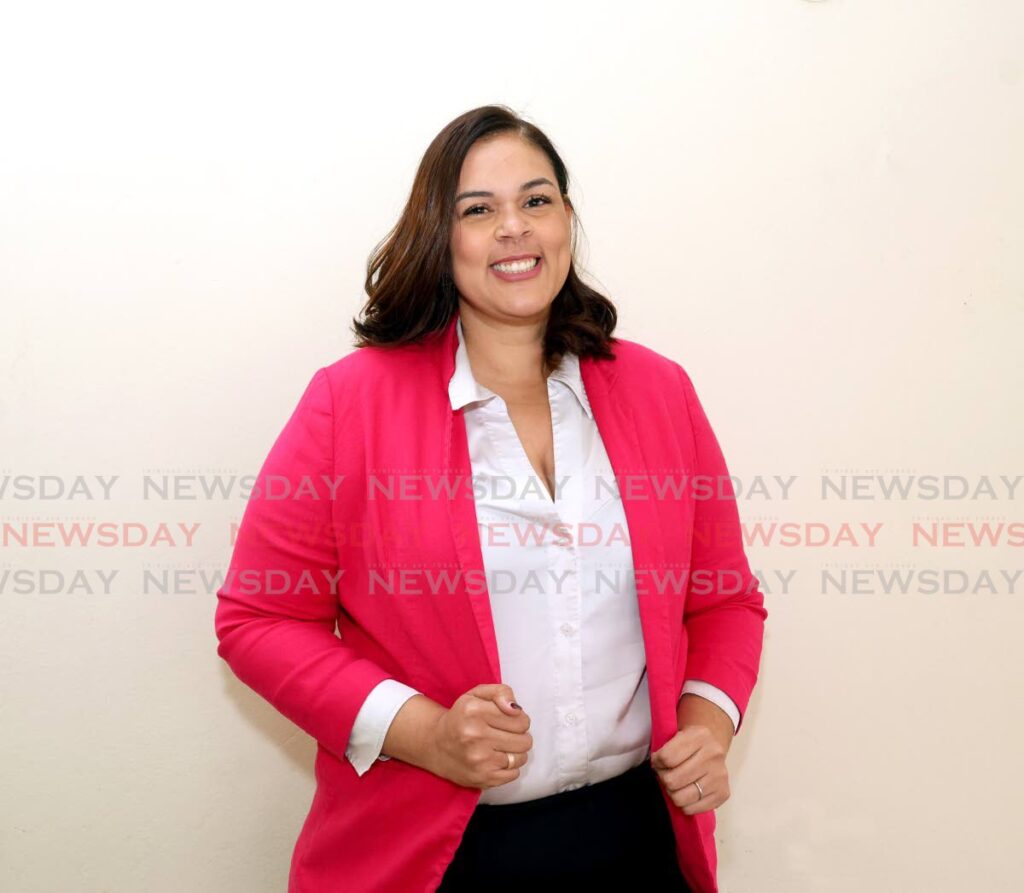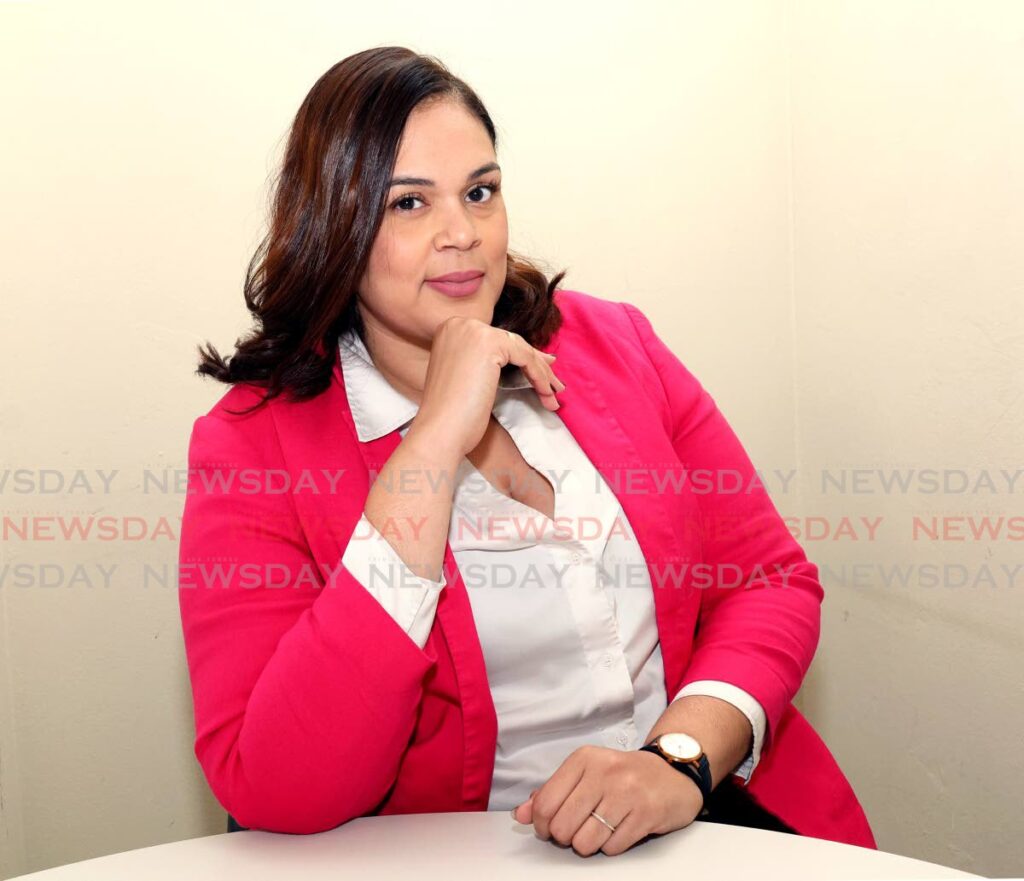Cropper Foundation CEO bridges gap between environmental development, communities

PROTECTING the environment and development do not have to be in opposition, says the new Cropper Foundation CEO Cherisse Braithwaite-Joseph.
And development needs to benefit the people in the communities involved, not just the businesses capitalising on the various resources therein.
Braithwaite-Joseph studied environmental science, policy and management, and, as The Cropper Foundation is a prominent name in the field, she often followed its work. She found it was a “cool and creative organisation” that was doing good work.
“What I was interested in was not so much environment for environment's sake, but that place where environment meets community and people, and I found Cropper very squarely fitted into that area.”
According to its website, the foundation was “dedicated to advancing informed and inclusive decision-making for sustainable development.” Its aim is to ensure decision-makers and communities consider nature and the environment in any approach to development.
“I think when you say people are passionate about the environment, there's an image that comes to your mind of somebody who's like a tree-hugger, who doesn’t want trees cut down ever in life and doesn’t want drilling.
“The way I was raised is much more balanced. Development is necessary, but it has to be done responsibly, and it has to be done in a way that benefits those who are in the community.”
She said her late father Richard Braithwaite worked in the marketing department at Petrotrin and the family lived on the refinery compound in Pointe-a-Pierre until she was 20 and he retired. She had early memories of oil spills, clean-up campaigns and practice drills to prevent future occurrences.
“I guess that kind of stuck with me, that we can somehow remediate what we’ve been doing and there’s a way to do it responsibly. In my childhood brain I never saw the two things (development and the environment) as opposite, and that stuck with me.

“How do you not take care of the environment when it sustains us? There is a way to do it that allows people to make money and improve economic status, but also take care of what we have been given.”
So when the former CEO left, she applied for the position and started her new job on October 28.
Braithwaite-Joseph, 38, said she had “stumbled” onto leadership teams before, as she did not anticipate being in those positions, but soon realised it was where she was supposed to be.
On being accepted for the CEO position, however, she briefly doubted her abilities even though her beliefs aligned with the organisation. But after she got feedback from her interview, she felt less like an imposter and believed she could handle all the job entailed.
Some of her responsibilities are to guide the team in its initiatives and activities, ensuring they align with the vision and mission of the organisation and ensuring the organisation accomplishes what it was set up to do in a sustainable way.
Braithwaite-Joseph attended the University of South Florida from 2005-2009 where she earned a BSc in environmental science and policy, after which she worked as a state campaign coordinator with an environmental justice group in Tampa, Florida.
She said she was surprised, because in the US, environmentalism is politicised and attached to moral values. Those who care about the environment are seen as anti-business, -profits and -development.
She heard people saying they did not care about climate change because it did not affect them, and that they did not care about island nations, which are affected by climate change the most.
But she did and felt, even more, how important it was to protect the environment and ensure the survival of her people.
That experience cemented her already-instilled belief that she has a responsibility to give back and advocate for those who can not do so themselves.
She recalled after her father left Petrotrin, he worked in the field of sports, becoming a national football administrator and Trinidad and Tobago senior men’s team manager.
She said he was passionate about community engagement and development. He focused his efforts in La Brea and environs because so much wealth was coming out of south Trinidad but people in La Brea were living in abject poverty
He ensured sponsorships were not just marketing for the companies but an investment in youth development, and he guided companies so their interventions would have more of an impact.
“He always had this thread of making sure that there was always an element of giving back. 'To whom much is given, much is expected,' and if you've been put in a position where you can give back and you're in a better position to advocate for those who can't advocate for themselves, then it's your responsibility to do so.

“So that's been a guiding tenet and I think it bleeds into why I gravitated towards the more people side of environmental management.”
Also, she said her mother was a teacher and her sister works in the public health sector, showing how much giving back was engrained in the family.
She recalled, at one point, she wanted to be a chef. She knew if she ended up in the food and nutrition field she would still want to use her knowledge and skill to help people.
She returned to TT from Florida in 2010 because she wanted to improve environmental law and its enforcement in her country.
“I came back with the very wide-eyed view to help and really put those skills and that knowledge to use. I quickly realised that we already have the skills here and we already know what the problems are. It's more of an issue of will and actually having people to champion it.”
She worked on some local projects and became aware that the scientific research had been done and information was there, but was getting into the hands of the people who make the policies.
She realised the people making the policies and dictating where funding went were disconnected from the needs of the people.
“And it's not because of lack of trying. It's because the persons who have the needs may not be in a position to advocate what those needs are, and they may not know what's possible to be fixed. Those who do know have the responsibility to bridge that gap.”
So she decided to focus on policy for her MSc, studying environmental management and policy at Lund University, Sweden where she graduated in 2012.
Two years later, she got married and now has a seven-year-old daughter.
She was a disaster risk reduction programme assistant at the UN Development Programme; a research analyst/ consultant at the consulting agency Everest Management and Communication Services Ltd; a regional co-ordinator in the Environmental Management Authority’s Permit Monitoring and Complaints Unit (Legal Enforcement and Compliance); and officer in charge of and the Caribbean Sea at the
Association of Caribbean States.

Comments
"Cropper Foundation CEO bridges gap between environmental development, communities"